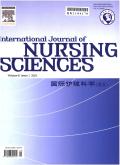Nurse-led inpatient education using a gamification approach for patients with mental illness: A quasi-experimental study
IF 3.1
3区 医学
Q1 NURSING
引用次数: 0
Abstract
Objectives
Patient education while hospitalized enhances patients’ ability to manage chronic diseases, including mental disorders, promoting adherence to treatment plans. This study aimed to evaluate the effectiveness of gamification as an instructional approach for nurse-led inpatient education.
Methods
A quasi-experimental study was conducted. A total of 112 participants were recruited from the Geha Mental Health Center, a tertiary mental health center in Israel, from September 2022 to June 2023 and randomly allocated to the intervention group or control group. Nurses provided health education to patients in the intervention group using gamification techniques based on traditional health education methods. Responsibilities, rights, and relevant information for hospitalized patients were written on different cards. Patients were divided into groups of 3–4, and health education was delivered through memory card games and quartet card games. Each type of game was played twice, each lasting 30 min, occurring once every two weeks. In the control group of patients, traditional health education methods were utilized. A self-developed questionnaire assessing knowledge, self-efficacy, and adherence was used to investigate the two patient groups before and after the intervention, allowing for a comparison of the results.
Results
Overall, 90 patients completed the study: 45 in the intervention group and 45 in the control group. Both groups improved knowledge, self-efficacy, and adherence after the intervention (P < 0.01). Furthermore, health education based on gamification methods was more effective than conventional health education in enhancing all three aspects of patient outcomes (P < 0.01).
Conclusion
Gamification is preferable to routine education for fostering patient engagement in therapeutic sessions by enhancing self-efficacy and knowledge. The findings may contribute to developing gamified educational interventions to improve the effectiveness of inpatient education.
利用游戏化方法对精神疾病患者进行护士主导的住院教育:一项准实验研究
目的住院患者教育可提高患者管理慢性疾病(包括精神障碍)的能力,促进对治疗计划的依从性。本研究旨在评估游戏化作为护士主导的住院病人教育的教学方法的有效性。方法采用准实验研究方法。从2022年9月至2023年6月,从以色列三级精神卫生中心Geha精神卫生中心招募了112名参与者,并随机分配到干预组或对照组。护士在传统健康教育方法的基础上,运用游戏化技术对干预组患者进行健康教育。住院病人的责任、权利和相关信息写在不同的卡片上。患者分为3-4组,通过记忆卡游戏和四重奏卡游戏进行健康教育。每种类型的游戏进行两次,每次持续30分钟,每两周进行一次。对照组采用传统的健康教育方法。一份自行开发的评估知识、自我效能和依从性的问卷用于调查两组患者在干预前后的情况,以便对结果进行比较。结果共90例患者完成研究:干预组45例,对照组45例。干预后,两组患者的知识、自我效能和依从性均有提高(P <;0.01)。此外,基于游戏化方法的健康教育在提高患者预后的所有三个方面比传统健康教育更有效(P <;0.01)。结论通过提高患者的自我效能感和知识水平,提高患者参与治疗的参与度,比常规教育更有效。研究结果可能有助于开发游戏化教育干预措施,以提高住院教育的有效性。
本文章由计算机程序翻译,如有差异,请以英文原文为准。
求助全文
约1分钟内获得全文
求助全文
来源期刊

International Journal of Nursing Sciences
Nursing-Nursing (all)
CiteScore
6.10
自引率
2.60%
发文量
408
审稿时长
25 days
期刊介绍:
This journal aims to promote excellence in nursing and health care through the dissemination of the latest, evidence-based, peer-reviewed clinical information and original research, providing an international platform for exchanging knowledge, research findings and nursing practice experience. This journal covers a wide range of nursing topics such as advanced nursing practice, bio-psychosocial issues related to health, cultural perspectives, lifestyle change as a component of health promotion, chronic disease, including end-of-life care, family care giving. IJNSS publishes four issues per year in Jan/Apr/Jul/Oct. IJNSS intended readership includes practicing nurses in all spheres and at all levels who are committed to advancing practice and professional development on the basis of new knowledge and evidence; managers and senior members of the nursing; nurse educators and nursing students etc. IJNSS seeks to enrich insight into clinical need and the implications for nursing intervention and models of service delivery. Contributions are welcomed from other health professions on issues that have a direct impact on nursing practice.
 求助内容:
求助内容: 应助结果提醒方式:
应助结果提醒方式:


